No products in the cart.
Levemir PenFill Cartridges (100 Units/mL)
$140.51 – $612.00
Levemir Penfill cartridges are a long-acting insulin solution designed to effectively manage blood glucose levels in individuals with diabetes. Each cartridge contains insulin detemir, providing a steady and reliable glucose-lowering action that lasts up to 24 hours. Ideal for both type 1 and type 2 diabetes, Levemir Penfill cartridges are easy to use with Novo Nordisk insulin delivery systems, ensuring precise dosing and convenient administration. Patients can utilize Levemir as part of a comprehensive diabetes management plan, often in combination with rapid-acting insulin. Trust Levemir Penfill cartridges for your insulin therapy needs, and experience improved glycemic control and a better quality of life. With Levemir Penfill, you can effectively manage your diabetes with confidence.
Comprehensive Guide to Levemir Penfill Cartridges: Usage, Safety, and Efficacy
Levemir Penfill cartridges are an integral part of diabetes management, specifically designed for use with Novo Nordisk insulin delivery systems and compatible with NovoFine or NovoTwist needles. Understanding the properties and usage of Levemir is crucial for effective blood glucose control and overall diabetes management. This comprehensive guide will delve into the specifics of Levemir Penfill cartridges, including its formulation, mechanism of action, dosage guidelines, administration techniques, potential side effects, and safety precautions.
Product Composition and Structure
Each milliliter of Levemir Penfill cartridges contains 100 units of insulin detemir, which is equivalent to 14.2 mg of the active ingredient. A single cartridge contains 3 ml of solution, providing a total of 300 units of insulin. The solution is packaged in a type 1 glass cartridge, featuring a bromobutyl plunger and a bromobutyl/polyisoprene rubber closure, ensuring a secure and sterile environment for the insulin.
The formulation of Levemir Penfill cartridges is a key aspect of its efficacy. Insulin detemir is a modern insulin analog that has been specifically engineered to provide a predictable and stable pharmacokinetic profile. Unlike regular human insulin, which has a rapid onset and a shorter duration of action, Levemir Penfill cartridges offers a long-acting effect, making it suitable for once or twice-daily dosing depending on individual needs.
It is important to note that Levemir Penfill cartridges cannot be refilled. This lack of refillability helps to maintain the integrity and sterility of the insulin solution, which is essential for safe administration. The convenience of a pre-filled cartridge eliminates the risk of contamination that could arise from transferring insulin into a syringe or other devices.
Indications and Usage
Levemir Penfill cartridges is classified as a long-acting insulin analog, primarily used to manage blood glucose levels in individuals diagnosed with diabetes. This includes children aged one year and above, adolescents, and adults. The role of insulin detemir in diabetes management is critical, as it mimics the body’s natural basal insulin secretion. This insulin formulation is designed to provide a steady and prolonged glucose-lowering effect, typically beginning within 3-4 hours after subcutaneous injection and lasting up to 24 hours.
The ability to provide a consistent level of insulin helps to stabilize blood glucose levels, minimizing the risk of hyperglycemia and hypoglycemia. Insulin detemir achieves this by forming a depot in the subcutaneous tissue, from which it is gradually released into the bloodstream. This mechanism makes it particularly beneficial for individuals who require long-term glycemic control.
Levemir Penfill cartridges can be used alone or in combination with other insulin types, such as rapid-acting insulin. It can also be integrated into broader diabetes treatment regimens that may include oral anti-diabetic medications or other injectable products. For patients with type 2 diabetes, Levemir may be prescribed alongside oral medications, providing a comprehensive approach to glycemic management.
Key Considerations for Insulin Administration
When managing diabetes with Levemir Penfill cartridges, it is vital to use separate insulin delivery systems for different types of insulin. This separation prevents potential dosing errors and ensures accurate administration of each insulin type. It is also crucial for patients to understand the correct usage of their insulin devices. Patients should be educated on how to properly load the insulin into the device, attach the needle, and perform the injection technique to ensure effective insulin delivery.
Before initiating treatment with Levemir Penfill cartridges, it is essential to consult with a healthcare provider to establish an appropriate dosing regimen tailored to the individual’s needs. Healthcare professionals typically start patients on a conservative dose of Levemir Penfill cartridges and may adjust it based on blood glucose monitoring results and overall diabetes management goals. Regular follow-up appointments are necessary to assess the effectiveness of the treatment and make any necessary adjustments.
Warnings and Precautions
Hypoglycemia is one of the most common side effects associated with insulin use. This occurs when blood sugar levels drop too low due to an excess of insulin in relation to food intake, physical activity, or other factors. Symptoms of hypoglycemia can range from mild to severe and may include cold sweats, headaches, increased heart rate, drowsiness, and confusion. Individuals are advised to carry a source of fast-acting carbohydrates, such as glucose tablets or sugary snacks, to manage hypoglycemia episodes effectively.
It is also important to be aware of potential injection site reactions, such as changes to the fatty tissue (lipodystrophy) under the skin. These reactions can include skin thickening, shrinking, or the formation of lumps. To minimize these effects, patients should rotate their injection sites regularly and avoid injecting into areas that show signs of these changes. Proper site rotation is essential for maintaining effective insulin absorption and preventing complications.
Allergic reactions to insulin are rare but can occur. Severe allergic reactions may manifest as rash, itching, difficulty breathing, or swelling at the injection site or elsewhere in the body. If an individual suspects they are experiencing an allergic reaction, they should seek immediate medical attention. It is advisable for patients to inform their healthcare providers about any known allergies or adverse reactions to medications in their medical history.
Another important consideration is the integrity of the Levemir Penfill cartridge and the accompanying needle. Before use, patients should inspect the cartridge for any signs of damage, such as cracks or leakage, or check if the solution appears discolored or cloudy. If any abnormalities are noted, the cartridge should not be used. Such precautions help prevent contamination and ensure the effectiveness of the insulin.
Storage and Handling
Proper storage and handling of Levemir Penfill cartridges are crucial to maintaining its efficacy. Unopened cartridges should be stored in a refrigerator at temperatures between 2°C and 8°C (36°F to 46°F). It is important to keep Levemir Penfill cartridges away from direct heat and light, as exposure can degrade the insulin and diminish its effectiveness. Patients should also avoid freezing the cartridges, as this can lead to insulin denaturation and loss of potency.
Once in use, Levemir cartridges can be kept at room temperature (below 30°C or 86°F) for up to 42 days. After this period, any unused insulin should be discarded. Proper disposal of insulin cartridges and needles is essential for safety and to prevent needle-stick injuries. Patients should consult local guidelines for the safe disposal of sharps and insulin products.
Administration Guidelines
Before use, patients should confirm that they are using the correct insulin by checking the cartridge label. It is important to follow the manufacturer’s instructions regarding the administration technique. The Levemir Penfill cartridges should only be administered via subcutaneous injection. The recommended injection sites include the front of the thigh, upper arm, or abdominal area.
Proper injection technique is crucial for effective insulin delivery. Patients should follow the technique outlined by their healthcare provider, ensuring the needle is inserted into the skin at the recommended angle, typically 90 degrees for subcutaneous injections. After injecting, the needle should be left in place for at least 6 seconds to ensure complete delivery of the medication. This waiting period is important to prevent any residual insulin from remaining in the needle, which could lead to inconsistent dosing.
Dosage and Administration Frequency
Levemir Penfill cartridges is typically administered once daily for most patients. However, some individuals may require twice-daily dosing based on their specific treatment needs and blood glucose patterns. When used in a basal-bolus insulin regimen, Levemir Penfill cartridges is often administered twice daily to achieve optimal glycemic control.
It is critical for patients to administer their dosage at the same time every day to maintain consistent insulin levels in the bloodstream. For those requiring two daily doses, the second dose may be administered in the evening or at bedtime, depending on their individual needs and the advice of their healthcare provider. Maintaining a regular injection schedule helps to prevent fluctuations in blood glucose levels and enhances overall treatment effectiveness.
Patients should work closely with their healthcare team to determine the appropriate dosage based on factors such as blood glucose monitoring results, lifestyle changes, and other medications. Regular communication with healthcare providers is essential for making necessary adjustments to the insulin regimen.
Adjustments in Dosage
Patients may need to adjust their Levemir Penfill cartridges dosage based on several factors, including changes in lifestyle, diet, physical activity levels, and any concomitant medications. For instance, if a patient increases their physical activity level or alters their diet, they may require adjustments to their insulin dosage to account for these changes. It is important for individuals to regularly monitor their blood glucose levels and consult with their healthcare provider regarding any necessary adjustments in their insulin regimen.
When switching from one type of insulin to Levemir or from Levemir Penfill cartridges to another insulin brand, patients should be aware that dosing adjustments may be necessary. Different insulin formulations have varying potencies and action profiles, so close monitoring is essential during these transitions. Healthcare providers typically recommend a gradual approach to adjusting doses to minimize the risk of hypoglycemia or hyperglycemia.
Potential Side Effects and Management
As with any medication, Levemir Penfill cartridges may cause side effects. The most common side effect is hypoglycemia, occurring in more than 1 in 10 patients. Individuals should be vigilant for signs of low blood sugar and take appropriate actions, such as consuming fast-acting carbohydrates when necessary. It is also advisable to keep a glucose meter handy to regularly monitor blood sugar levels.
In addition to hypoglycemia, patients should also be aware of potential hyperglycemia (high blood sugar) symptoms, which may arise from inadequate insulin dosing or illness. Symptoms of hyperglycemia can include increased thirst, frequent urination, fatigue, and blurred vision. If left untreated, hyperglycemia can escalate to serious complications such as diabetic ketoacidosis, a potentially life-threatening condition characterized by high blood sugar levels, ketone production, and metabolic acidosis.
Patients experiencing consistent high or low blood sugar levels should consult their healthcare provider for evaluation and potential adjustment of their insulin regimen. This may involve modifying the timing, dosage, or type of insulin being used.
Emergency Preparedness
Education on recognizing the signs of hypoglycemia is crucial not only for the individual but also for family members and caregivers. They should be aware of the symptoms and the appropriate response, such as administering fast-acting carbohydrates or glucagon in the case of severe hypoglycemia.
Patients should keep a glucagon kit readily available for emergencies and ensure that those around them know how to administer it if necessary. Glucagon is a hormone that raises blood sugar levels rapidly and can be life-saving in severe cases of hypoglycemia. It is essential for patients to educate their family and friends about recognizing the signs of hypoglycemia and the importance of not administering food or drink orally to someone who is unconscious or unable to swallow, as this could lead to choking.
Education and Support
Proper education about insulin therapy is essential for successful diabetes management. Patients should receive comprehensive training on using Levemir Penfill cartridges, including how to store, handle, and administer insulin. Healthcare providers can facilitate this education through individual consultations, group sessions, and resources such as pamphlets and online materials.
Additionally, many healthcare facilities and diabetes organizations offer support groups and educational programs for individuals living with diabetes. These programs can provide valuable information about diabetes management, nutrition, exercise, and coping strategies, fostering a sense of community and support among individuals facing similar challenges.
Lifestyle Modifications
In addition to insulin therapy, lifestyle modifications play a significant role in managing diabetes effectively. Patients should be encouraged to adopt a balanced diet that focuses on whole foods, including fruits, vegetables, whole grains, lean proteins, and healthy fats. A registered dietitian can assist in developing a personalized meal plan that aligns with individual preferences and diabetes management goals.
Regular physical activity is also vital for maintaining optimal health and managing blood glucose levels. Patients should aim for at least 150 minutes of moderate-intensity aerobic exercise per week, along with strength training exercises at least twice a week. Engaging in regular physical activity can improve insulin sensitivity, aid in weight management, and enhance overall well-being.
Mental Health Considerations
Living with diabetes can take a toll on mental health, and individuals may experience feelings of anxiety, depression, or burnout related to their condition. It is crucial for healthcare providers to screen for mental health issues regularly and provide appropriate referrals to mental health professionals when necessary.
Support groups, counseling, and psychotherapy can be beneficial for individuals coping with the emotional aspects of diabetes management. Encouraging open communication about mental health concerns can foster a supportive environment for individuals navigating the challenges of diabetes.
Long-term Monitoring and Follow-up
Regular follow-up appointments with healthcare providers are essential for ongoing diabetes management. These visits allow for monitoring blood glucose levels, assessing the effectiveness of the insulin regimen, and making necessary adjustments. Routine blood tests, including hemoglobin A1c levels, should be conducted every three to six months to evaluate long-term glucose control.
In addition to monitoring blood sugar levels, healthcare providers should also assess other aspects of diabetes management, such as blood pressure, lipid levels, and kidney function. Early detection and management of potential complications can significantly improve long-term health outcomes for individuals with diabetes.
Conclusion
Levemir Penfill cartridges represent a vital component in the effective management of diabetes, offering a long-acting insulin option that helps individuals maintain stable blood glucose levels. Its formulation, which contains insulin detemir, provides a consistent and prolonged glucose-lowering effect, making it suitable for various treatment regimens, whether used alone or in combination with other insulin types and diabetes medications.
However, successful diabetes management extends beyond merely using Levemir; it necessitates a comprehensive understanding of dosing, administration techniques, potential side effects, and the broader lifestyle modifications necessary for effective control of blood glucose levels. It is imperative for patients to educate themselves about their condition, engage in regular blood sugar monitoring, and maintain open communication with their healthcare team. This collaboration ensures that treatment plans can be tailored to individual needs and adjusted based on ongoing assessment of blood glucose control and overall health.
Moreover, recognizing the mental health aspects of living with diabetes is crucial. Support from healthcare providers, family, and community resources can significantly enhance an individual’s ability to cope with the challenges associated with diabetes management. By incorporating psychological support and education about healthy lifestyle choices, patients can achieve a more balanced and fulfilling life.
Regular follow-up appointments, continuous monitoring of blood glucose levels, and proactive management of potential complications are essential components of long-term diabetes care. Through these efforts, individuals using Levemir can navigate their diabetes journey more effectively, leading to improved health outcomes and a better quality of life.
In conclusion, while Levemir Penfill cartridges are a powerful tool in diabetes management, the journey toward optimal health is multifaceted. By combining effective insulin therapy with comprehensive education, lifestyle modifications, and emotional support, individuals with diabetes can enhance their self-management capabilities, fostering resilience and empowering them to thrive in their daily lives.
Additional information
| Levemir PenFill Cartridge - 100u/mL | 5 cartridges, 10 cartridges, 15 cartridges, 20 cartridges, 25 cartridges |
|---|

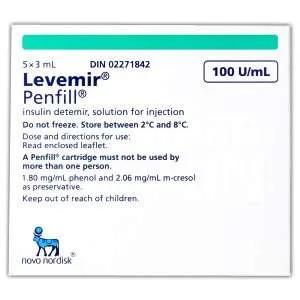
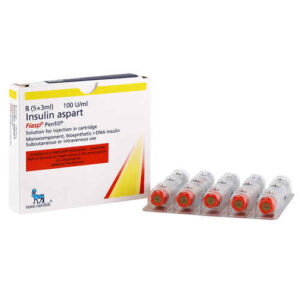

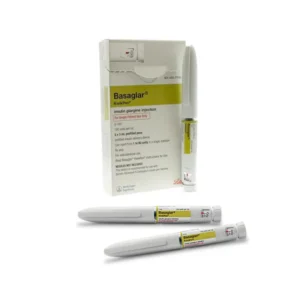
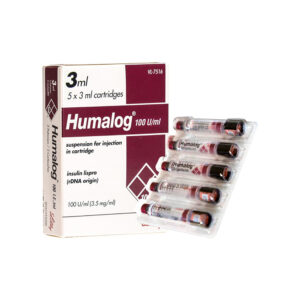
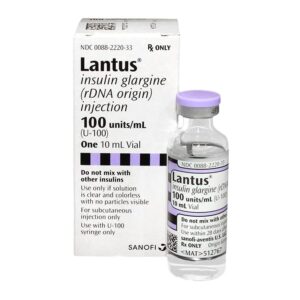
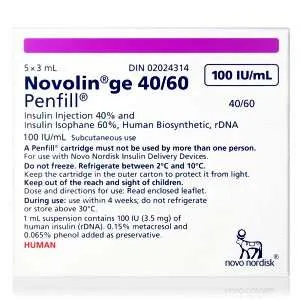
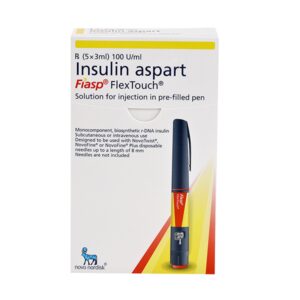
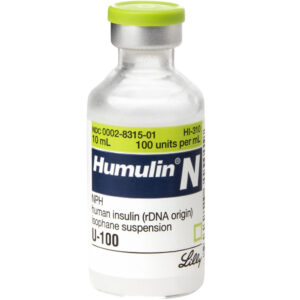
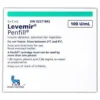
Reviews
There are no reviews yet.